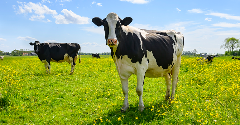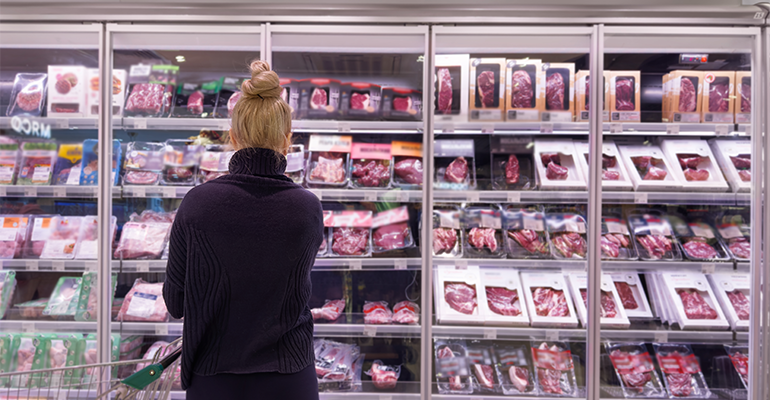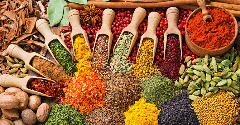News
Survey: quality drives millennial food shopping
17 Sep 2019Quality drives millennial food shopping, and they are willing to pay more for it, according to a new Whole Foods Market survey.
80% of millennials value quality when it comes to food shopping, and nearly 70% are willing to spend more money on high quality foods.

These findings are part of a new survey that examines millennial food, health and grocery shopping preferences, which was conducted independently by YouGov on behalf of the retailer. The national online survey sampled 1,006 adults between the ages of 22 and 37 in the U.S.
Another trend that emerged is more informed purchasing decisions. A majority of millennials want to know where their food comes from and how it is sourced. Transparency in food sourcing is important to more than 65% of millennials, particularly for fresh meat and seafood. More than half of millennials will pay more for products that have adopted animal welfare standards and prefer to buy those responsibly sourced.
Food labelling and ingredient transparency are also key factors in millennials’ choices: Compared to five years ago, nearly 70% of millennials read labels more closely. More than 60% are more concerned about additives and growth hormones. Ultimately, half of millennials buy more organic products than they did five years ago.
“We’re always striving to better understand our customers’ passions when it comes to food,” said Sonya Gafsi Oblisk, Whole Foods Market’s Chief Marketing Officer. “Millennials don’t settle for just any food in their shopping carts, and neither do we. The stories of how food is produced and grown matter to them – and to us. That is why we ban more than a hundred ingredients in the food we sell. Going beyond the USDA requirements, we prohibit antibiotics and added hormones for all meats in our meat department, and we only sell sustainable wild-caught or Responsibly Farmed seafood. Our standards drive the work we do and if products don’t meet our standards, we don’t sell.”
Other findings include
+ Nearly seven in ten millennials spent more on food than on travel in the past year. A majority of millennials surveyed considered themselves to be “adventurous” eaters when it comes to food, and more than 60% make an effort to cook new dishes.
+ More than six out of ten millennials try to eat healthy daily. Plant-based and unprocessed foods are becoming more popular with 63% of millennials trying to incorporate them into their diets.
+ Over the past year, nearly half of millennials have tried a special diet, such as Keto and dairy-free. 52% restrict ingredients due to health reasons. More than half of millennials found that maintaining an alternative diet is often inconvenient so are willing to pay more for convenient, ready-made meals that are healthy and high quality.
+ More than 60% are aware of the implications their food choices have on the environment. About half actively seek out food and beverages made of less packaging and plastic.
Related news

Sustainable grains present a healthy growth opportunity
3 Oct 2024
Food insights provider SPINS unveils the latest trends in the sustainable grains field, exploring how seven leading grains show healthy growth despite challenges in the global value chain.
Read more
Will we see a wave of NPD that focuses on insulin management?
1 Oct 2024
As a new study finds protein and fats can help manage insulin, food manufacturers are building on emerging GLP-1 platforms and supporting nutritional guidance.
Read more
New environmental food scoring standards emerge
30 Sep 2024
EIT Food and Foundation Earth collaborate to launch environmental food scoring for products entering the global supply chain.
Read more
Africa progresses with food transformation strategy
19 Sep 2024
Large-scale efforts are underway to drastically change the African food sector with a $61 billion (€55 bn) set of proposed transformation plans to be implemented across forty countries. Yet there are concerns that this initiative severely jeopardises s...
Read more
European Commission releases new supply chain recommendations
6 Sep 2024
The European Union’s (EU) legislative arm publishes its latest guidance on protecting the market’s food supply chain against current and future crises.
Read more
Tesco trials methane mitigation supplement for dairy cattle
5 Sep 2024
Tesco is trialing a methane-reducing feed supplement for one of its key UK dairy farms, sustainable UK milk producer Grosvenor Farms.
Read more
European consumers want more freedom to choose biotech-based food
3 Sep 2024
Survey findings point to growing levels of interest in cultivated meat as European consumers say they want the freedom to choose the lab-based products.
Read more
Will ‘foie gras’ become the EU’s first approved cultivated meat?
20 Aug 2024
French startup Gourmey has submitted its cultivated foie gras for approval in the European Union (EU), signalling the first application of its kind in the region.
Read more
Europe gravitates to African spices
19 Aug 2024
Shipping delays, limited production output and climate change impact Europe’s spice supply, creating opportunities for African brands to enter the captive market.
Read more
Paris Olympics: Food and beverage brands champion health, fun, and sustainability
5 Aug 2024
Food and beverage brands are aligning with the Paris Olympics 2024 Food Vision, which emphasises sustainability, local sourcing, and plant-based diets.
Read more